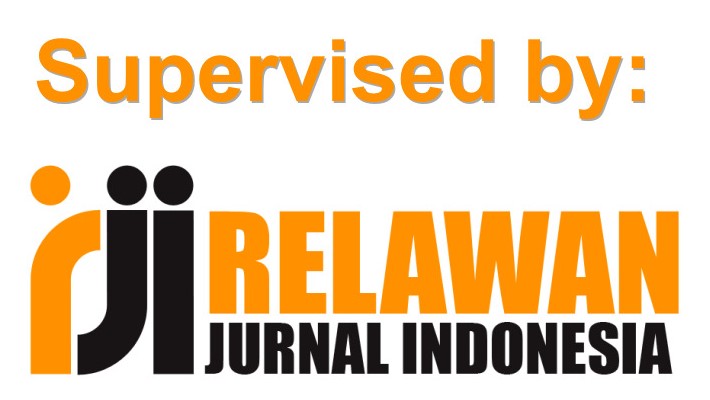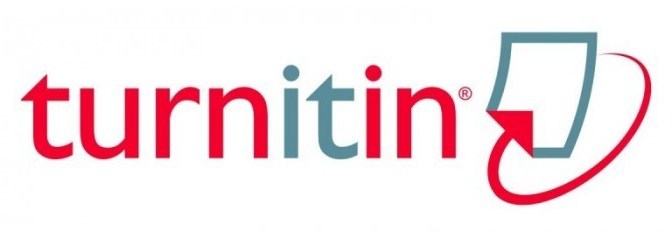Pemberdayaan Guru Dalam Pengembangan Perangkat Pembelajaran IPA SMP Pada Tahap Lesson Plan dalam Sistem LSLC
DOI:
https://doi.org/10.31100/matappa.v3i1.440Keywords:
Lesson Plan, LSLC, High Order Thingking.Abstract
This PKM is conducted at Sint Vianney Middle School which is located at JLN. I Gusti Ngurah Rai, Kampung Baru Village, Soe City District, TTS Regency, NTT Province. The problems experienced are the science learning tools developed that do not meet the standards of the learning process and have not directed students to have high order thinking skills (High Order Thingking Skill / HOT), the unavailability of special spaces for laboratories, practical tools and materials available in a minimum and have not seen their use optimally in the learning process so that it is not contextual. The elaboration of the steps of learning in the classroom shows that the learning models used are not carried out as they should, the practicum carried out only refers to observations but other scientific aspects have not been implemented, the lack of student activity, the process of evaluating learning outcomes is dominant in the aspects of knowledge (CC 3 ) especially on low-level thinking skills, and do not include assessments for aspects of skills (KI 4), high order thinking skills (High order Thingking Skill / HOT), subject matter related to the background of chemistry such as elements, compounds, mixtures, materials household chemistry ladder, additives and addictive substances taught by biology teachers, the process of developing learning devices is still carried out individually by each teacher in the field of science studies and has never been done in groups so that problems in the learning process have not been well identified, and the solutions have not been discussed and resolved jointly ma. The solution is to conduct training to improve the ability of teachers to design science learning tools that are in accordance with the standards of the learning process and which lead to students' high order thinking skills (HOT), and empower teachers to design LKPD which are oriented towards the use of materials in the environment around and integrate it in the learning process. In relation to assessment standards that have not been implemented properly, training needs to be done so that teachers can develop valid instruments to assess all aspects expected in the learning assessment standards. The results of this PKM are a collection of RPP that meets the learning process standards, LKPD, teaching materials, KI 3 assessment instruments that include high order thinking skills (High Order Thingking Skill / HOT), and KI 4 ,. While the resulting target is an increase in the ability of teachers to design learning devices that meet the standards of the learning process, an increase in the ability of teachers to develop assessment instruments for aspects of knowledge (KI 3) that include high order thinking skills (High Order Thingking Skill / HOT), skills (KI 4), and optimizing the use of practical tools and materials in schools and in the surrounding environment in the process of developing learning tools.
Activities that have been carried out to achieve the above PKM targets consist of the Planning (lesson plan) stage of the Lesson Study Learning Community (LSLC) system, namely:
Planning the PKM activity schedule with the team leader, members and teachers in the school.
Seminar on the implementation of the LSLC system, Development of Learning Tools, and assessment instruments that meet the process standards and assessment standards in the 2013 curriculum. In this seminar the material presented and discussed included
Use of the LSLC system.
Development of Student Activity Sheets (LKPD) and models, approaches, which meet the learning process standards according to the 2013 curriculum.
Development of instruments for assessing aspects of skills that meet the 2013 curriculum assessment standards and how to integrate them in the learning process in the classroom.
Development of knowledge assessment instrument that refers to the ability to think at a high level / hight order thingking (HOT).
Planning phase (lesson plan) in the Lesson Study Learning Community (LSLC) system. At this stage the science teacher consisting of 2 physics teachers and 3 biology teachers are assembled to identify problems in the learning process and plan through activities: a. Workshop on Developing Student Activity Sheets (LKPD) on science / science material in junior high schools and developing skills instruments (IC 4) b. Workshop on the development of Learning Implementation Plans (RPP) that is in line with the learning process standards. c. Workshop on the development of an instrument of assessment of knowledge aspects (CC 3) that refers to higher order thinking skills / hight order thingking (HOT)
References
Belmawa, 2017. Panduan Peningkatan Mutu Pembelajaran melalui Lesson Studi Learning Community (LSLC) di Perguruan Tinggi. Dirjen Belmawa. Jakarta
Kemendikbud, 2017. Model Silabus Mata Pelajaran Sekolah Menengah Pertama/Madrasah Tsanawiyah (SMP/MTs). Jakarta.
Kemenristekdikti, 2018. Pedoman Program Short Term Training On Lesson Study (stols).
Kurniati, D, dkk. (2016). Kemampuan Berpikir Tingkat Tinggi Siswa SMP di Kabupaten Jember dalam Menyelesaikan Soal Berstandar Pizza. Jurnal Penelitian dan Evaluasi Pendidikan. Vol 2. No. 20. Diunggah pada 1 Agustus 2019.
Maison dkk, 2015. Peningkatan Aktivitas Belajar Siswa pada Materi Fisika Melalui Kegiatan lesson study di SMP 17 Kota Jambi. Jurnal Pengabdian Pada Masyarakat. Vol 30. No 4.
Permendikbud RI, No 22. 2016. Tentang standar proses pendidikan dasar dan menengah.
Permendikbud RI. No 23. 2016. Tentang Standar Penilaian Pendidikan .
Tinenti, Y, R. 2011. Pengembangan Perangkat Model Pengajaran Langsung dan Pendekatan Keterampilan Proses yang Terintegrasi dalam Model Pembelajaran Berbasis Proyek. Artikel Seminar Nasional Universitas Patimura Ambon.
Tinenti, Y, R. 2017. Model Pembelajaran Berbasis Proyek dan Penerapannya Dalam Proses Pembelajaran di Kelas. Deppublish. Yogyakarta.
Downloads
Additional Files
Published
Issue
Section
Citation Check
License
Jurnal ini memberikan akses terbuka langsung dengan prinsip bahwa membuat penelitian tersedia secara bebas untuk publik mendukung pertukaran pengetahuan global yang lebih besar.
Semua artikel yang diterbitkan dapat di Akses secara Terbuka atau Gratis untuk semua orang baik untuk dibaca maupun diunduh di bawah lisensi CC-BY.
Ppenulis mempertahankan kepemilikan hak cipta untuk artikel mereka, tetapi penulis memberikan izin kepada orang lain untuk menggunakan konten publikasi di Matappa secara keseluruhan atau sebagian asalkan karya aslinya dikutip dengan benar.
Hak cipta mencakup hak eksklusif untuk mereproduksi dan menyampaikan artikel dalam semua bentuk dan media, termasuk cetak ulang, foto, mikrofilm dan reproduksi serupa lainnya, serta terjemahan. Reproduksi bagian manapun dari jurnal ini, penyimpanannya dalam basis data dan transmisi dengan bentuk atau media apa pun, seperti elektronik, salinan elektrostatik dan mekanik, fotokopi, rekaman, media magnetik.

MATAPPA is licensed under a Creative Commons Attribution 4.0 International License.









